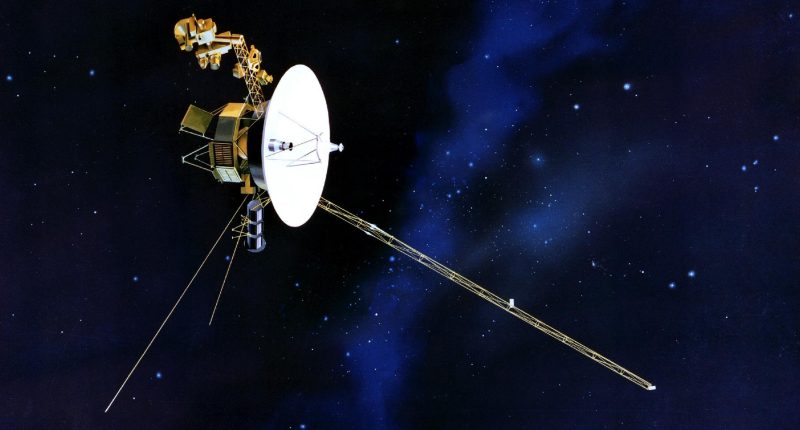NASA’s Voyager 1 has been acting strange lately and sending back random bits of data.
Nasa engineers are mystified by the glitch and are working to fix it, reports say.
Voyager 1 was the first spacecraft to cross the heliosphere and is currently the most distant human-made object from Earth.
Currently, the probe is around 15 billion miles from Earth and has been active for 4.5 decades.
However, now it’s sending back strange messages – binary data consisting of only 1s and 0s – due to a malfunction of some sort.
In computer speaker, binary data describes a certain line of current in an electrical circuit being on (1) or off (0).
To attempt to tackle the problem, scientists have been sending commands to the probe.
But because Voyager 1 is so far from Earth, the messages take around 22 hours to send.
That means it will take days for experts to find out if their commands are sending correctly.
This isn’t the first time that Voyager 1 has delivered random and strange data.
Most read in News Tech
In May 2022, the probe sent back data about its location and orientation in space that conflicted with what Nasa knew about its position.
“A mystery like this is sort of par for the course at this stage of the Voyager mission,” Suzanne Dodd, a project manager at Nasa’s Jet Propulsion Lab, said at the time.
VOYAGER 1
The probe launched from Cape Canaveral along with Voyager 2 in 1977 as part of Nasa’s Voyager program to explore Jupiter and Saturn.
The mission was only meant to last five years, but the instruments have endured in deep space for around 45 years.
Since the probes’ launch, they have traveled a remarkable 14.46 billion miles from Earth – further than any man-made object.
Last year, Nasa announced that the program was coming to an end, as the two spacecraft entered their final phase.
By 2025, both vehicles, which run via radioisotope thermoelectric generators, are expected to run out of power.
In the meantime, the space agency has been eliminating features to keep the machines operating until then.










